7 IMPORTANT HOME AND OFFICE SECURITY MEASURES
WHAT ARE SECURITY MEASURES?
These are simply Policies and regulations, That enable an organization to maintain, implement, administer, and audit its security. If the organization is threatened or attacked, the procedures help mitigate the risks and promptly implement countermeasures.
IMPORTANCE OF SECURITY MEASURES
-Reducing the risk of data breaches and attacks in IT systems.
-Applying security controls to prevent unauthorized access to sensitive information.
-Preventing disruption of services, e.g., denial-of-service attacks.
-Protecting IT systems and networks from exploitation by outsiders.
-Keeping downtime to a minimum so productivity stays high.
-Ensuring business continuity through data protection of information assets.
DIFFERENT TYPES OF SECURITY THREATS
-Theft
Theft of papers, electronic documents, and equipment occurs in the workplace, and firms should make avoiding employee theft a high concern.
-Tailgating
When an unauthorized person follows an authorized person into a secure area, this is known as tailgating. Wearing a uniform and supplying phony identity can also be used to get over physical constraints. The majority of the time, it is due to the negligence of employees who leave the office door open when someone is approaching, allowing them to tailgate.
Leaving a vital workplace space unattended or unsecured is a critical component that can create a significant danger to your business’s physical security breaches.
-Unaccounted Visitors
Unidentified guests represent a significant risk because you won’t know if they were present if an incident occurs.
A swipe-card-access or visitor pass tag can be used as a control mechanism for this. This way, you’ll always know if someone on your property is permitted to be there, and you’ll have a log of entry to check later to see when someone was there.
-Stolen Identification
Business identity thieves and fraudsters are cunning and determined, and they may quickly exploit business owners who fail to take basic security steps.
Employees will frequently exchange or lend their cards to one another if they are not properly trained, making it difficult to effectively control access. Employees may be negligent with their identification unless the need of keeping it safe is shown.
TYPES OF SECURITY MEASURES
Security is crucial to any office or facility, but understanding how to get started in this field can be difficult, to say the least. Even in small spaces, there can be dozens, if not hundreds, of moving parts that can confuse even the most seasoned business professional. Deciding how to protect your business and its assets can be a process that seems nearly impossible at first. But with the right tips and tricks, anyone can become an expert on security measures, no matter how lost you might feel at first.
–Access control
Access control is a crucial part of data security since it determines who has access to and uses company data and resources. Access control policies ensure that users are who they say they are and have proper access to company data through authentication and permission. A comprehensive access control system and strategy would also include the use of advanced locks, access control cards, mobile phones, or biometric authentication and authorization.
–CCTV Surveillance
CCTV, or closed-circuit television, is a system that allows you to keep an eye on what’s going on in and around your business. Cameras and monitors enable you to view events live, and recorders archive footage for later reference.
–Protective barrier
Protective barriers are used for preventing the forced entry of people or vehicles and should always be complemented by gates, security guards, and other points of security checks. Once you get to the main building, locks are a very effective method that enables only individuals with a key or a proper level of access control to open or unlock a door or gate.
–Visitor Management
Any secure office’s hidden weapon is a dedicated visitor control system. While much effort is expended to make the employee experience safer, paying attention to visitors can help prevent them from abusing your trust to gain access to your confidential files and data. Spending the time to create a comprehensive plan, complete with access control, specialized security measures, and plenty of backups for each component is well worth the extra effort.
–Smart Home Automation
Smart home cameras are excellent, low-cost, and quick-to-install products. They’re ideal for small enterprises with a limited IT budget, and they provide a wide range of complex tasks. Of course, precision, image quality, transmission speed, security, and a slew of other features are all quite basic, but a Ring Wireless Doorbell or Nest Camera can provide adequate security.
-Protection For Your IDs And Passwords
As business owners, we work at lightning speed and the “remember my login” feature seems like a great way to not slow things down. In today’s environment of hackers, this is one of the worst things we can do to protect our confidential information.
-Employee Negligence
Most people envision a hacker staying awake all night trying to break into your systems to steal data. The truth is, most data breaches and security threats occur because of internal employees’ negligence. Make sure your own team understands how to keep their physical and digital workstations secure by always locking their stations and keeping passwords secure.
Wrapping Up.
While all spaces are unique, there are some best practices that may be applied to a variety of physical security strategies. Access control, in particular, is an excellent approach to ensure that you are aware of who is entering your space, as well as when and how they do so. Protecting your valuable assets and sensitive data will save you time and money in the long run, especially in places that deal with key clients or confidential information. Physical security can be perplexing, but it doesn’t have to be; with proper planning, any area can be made more safe.
